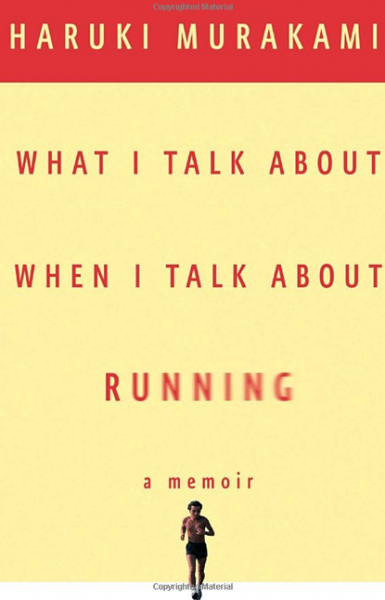Sometimes, I think, it's important to think different. Sometimes, when everyone is doing one thing, you should try the exact opposite. It doesn't mean it will work, but it's almost always worth the try. Perhaps you'll run into something nobody has ever thought of.
This idea is one of those things. I think it works pretty well… sometimes, and it probably won't work for everyone. The idea is simple: When studying Japanese (or doing anything else), you should stop when you least want to (i.e. when you want to keep studying). Sounds counter intuitive, right? Here's why it works.
Where It Came From
I learned this idea from Haruki Murakami's non-fiction book "What I Talk About When I Talk About Running," which is the only book of his that I've read. I liked it. It was inspiring and fun to peer into his mind a bit (and even got me to consider running… hasn't really worked that well though, I'm more into sitting). In his book, he said that he stops writing when he most wants to continue writing. What!? That's crazy. Shouldn't you take advantage of that motivation to keep going and keep writing? Murakami didn't think so, and I think he's on to something.

I'm paraphrasing, but he said that the reason he stops writing when he's most motivated to continue writing is because that means he knows he's going to be excited to write some more the next day. Since he stopped when he didn't want to stop, he's going to look forward to starting up again the next day and won't waste any time doing so.
That's genius.
For the last week, I've been trying that with work. When I feel like I want to keep going, I stop. Because I want to keep going, I wake up earlier the next day than I normally would, and am able to jump right back into work, whereas normally it might take some time to get settled in and figure out what I want to do. That right there is wasted time, and this solves it.
Why It Works
The reason this works is because of the way our brains deal with motivation. When it comes down to it, we don't want to do the things we're supposed to and we want to do the things we're not supposed to. By using this "stop when you're motivated" method, you can flip this on its head. By telling yourself and making yourself not do something, it becomes more desirable, and you'll want to do it even more.
On top of this, we're also canceling out the most difficult part of doing any type of work or study (Japanese, of course)… Getting started. How many times have you said "I have to study my Japanese," and then you just sat there putting it off or doing something else. Once you get started, though, it's easy to get in the zone and zero in your concentration. The hard part, as you all know, is getting to that point. There's something about "getting started" that's daunting, but by stopping right in the middle of something, you know exactly where to start, and you're even excited to start.
It's kind of like when your parents used to read you books. They'd stop somewhere exciting, and the next night, you'd know exactly where to start up again (and you looked forward to it all day long).
Applying This To Your Japanese Studies
I'm going to talk about applying this to your Japanese studies, but of course you can apply this almost anywhere else in your life as well. Give it a try for at least a little while, and if it doesn't work then it doesn't work.
When you're studying Japanese, get yourself a timer and have it go off every five minutes. At each five minute interval, write down on a piece of paper how much you want to continue. You can even come up with some kind of ranking scale (three out of six batwings?) to help you gauge things. As you go through, keep track of your excitement / motivation levels. Once your ranking scale gets up to somewhere between 80-100%, immediately stop what you're doing, whether it's in the middle of a kanji deck or in the middle of writing a sentence. All that's important is that you're honest with yourself in terms of how motivated you are to continue, and that you stop when you're supposed to stop.
It won't feel good to stop, sure, but that's the point. You're giving yourself something to really look forward to, which ends up leading to much more consistent Japanese studies, which is way way better in the long run.
I'm continuing to experiment with this even as
